|
How My Practice Has Swung into Action Lately :) I recently shared this email with my lovely meditation crew, I wasn't going to share it publicly but received so many replies saying how useful it had been to read it that I thought Id bite the bullet and put it out there! :) I have been navigating some interesting new life developments and, as many of you may wonder how all of our meditation practice can actually be applied to real life, I thought that I'd share what has been going on over here and how it has really boosted my practice. First up I have to say, in case anyone wonders, this is not a sympathy fishing post in any way, I really am fine, in fact I'd say that I feel more connected to everything than before and there are certainly millions if not billions of people in far, far worse situations than mine. So Ill just put that to bed :) Anyway, the short story is that I was diagnosed with a degenerative eye condition - it was all a bit of a surprise because it was bang in the middle of a yoga teacher training weekend here and without any warning I lost a patch of vision and ended up sitting in casualty on a bank holiday Sunday evening til 10:30. Haha The yoga group were absolute legends and as it turned out I was back at the helm by 9 am the next morning to carry on teaching but then I ended up back in hospital again a few days later with more eye oddness that caused them to make this diagnosis. What does it mean? I don't know exactly as there is no specific time frame, but unless they come up with some new treatment (always possible) then the proposition is that I could lose my central vision in that eye eventually - maybe in years, maybe sooner, maybe never (Im leaning towards the last option :) The other eye is currently ok although they aren't sure whether it will also be affected as it shares a similar pathology. To be honest it is a pretty naff employee anyway due to a past detached retina and I don't use it much - maybe this newly affected eye was feeling overworked and has gone on strike!? So I simply wanted to break down not my medical history (yawwwn) but how I have been practically applying what I spend so much time sharing with others! I know that every single person has issues in their own lives - physical or otherwise and I hope that some of this might be useful for you if you aren't sure how to apply a practice that you might have. Lesson #1: Obviously at first that all came as a bit of a shock and a surprise - not what I was expecting when I woke up that Sunday morning - but the first teaching that sprung to mind as soon as they told me was ‘everything is impermanent, all experiences are by their very nature changing’ In fact, apparently the Buddha's last words when asked what his final teaching would be was ‘Everything changes’. So of course why on Earth wouldn't this happen? Any suffering after the initial event comes from forgetting this - any idea of ‘Why is this happening to me?’ is the wrong question. For starters, things just happen, everything changes - none of this is happening to me unless I choose to take it personally and I really don't believe that my eyes have any sort of vendetta against me. In fact they have struggled on working every day for 48 years, bless them - not always very well and generally without thanks, but they got the job done - so I should thank them for their very kind service! So the first lesson of change was taken and acknowledged. Very useful and took the sting right out of the initial news:) Lesson #2: working with the fear & anxiety - after the initial shock subsides the fear begins - what will we do here if I can't see? The nearest bus is 45 mins walk away if I could even find my way there. Do we need to put the house on the market? How will I look after the masses of gardens, maintain the buildings, all of the day to day nonsense? Fear is just indulgence of (harmless) thoughts that cause my body to feel a certain way and it is that feeling in the body that I label as fear. So lesson two was - ‘Don't get carried away by the feelings in your body and don't lend abstract thoughts some sort of validity that they don't deserve’ - yes we may get to a point where it isn't easy to live here or we may not. I might wake up dead from something else long before that happens or a million other things that could arise in the interim. We might simply decide that life would be simpler in a town or we might decide that we prefer it here or infinite other unimaginable possibilities. I have seen many incredible blind athletes, surfers, runners, skateboarders and goodness knows what else - carrying on, doing whatever they do, finding that incredible way round things that humans are so good at. Whats more I still have one unaffected eye and then, tangled up in thought I start to forget that even if I lose vision in the affected eye it is only supposed to be a loss of central vision - OK that's certainly useful for reading, typing, using tools, watching Netflix and seeing faces - but by my judgement that isn't blind, that is just a bit of a puzzle to be worked out. I’m sure I could still find my way about with some peripheral vision and Gemma said she has all sorts of fun lined up for me placing booby traps and trip wires around the house to keep me on my toes Lesson #3 - this is a gift! So many traditions talk about this. Challenges in life are our blessing - they give us an opportunity to grow; they serve as pointers back to the path. Each time I find myself obsessing over my worries or fears I notice very clearly what is happening and it is a fantastic reminder to step out of mind obsession and back into simple awareness. I mean this stuff is normally so hard to remember unless we have some really outstanding screw up in our day - but at the moment I have this very handy constant and obvious reminder, literally everywhere I look, to step back into simple awareness - anything is possible, everything changes. I can honestly say that my practice has been totally on point since this little incident popped up! So a massive gracias to the universe for giving me a shove. In fact this morning in my practice I ended up in a hysterical fit of laughter - Gemma walked past and wondered what I was laughing at so loudly, I couldn't even speak as I was out of breath. Whilst just being still it popped into my head - 'What is wrong with any of this?' - immediately I knew that absolutely nothing was out of place, none of it was 'wrong'. If it wasn't meant to be like this then it would be different. I couldn't stop laughing at how ridiculous it was to think it should be any other way! Lesson #4: Compassion And finally I get to practise some focussed and dedicated compassion practice - compassion for myself, compassion for my broken little eye ball, compassion for Gemma who also has to deal with the same events and worries but gets no attention for it and compassion for all people who have, are, or will also go through the suffering of losing their sight but equally for all beings that are suffering from whatever their condition is - physical or otherwise. In fact I would say that I haven't felt this compassionate for some time - I can generally be very middle of the road in the compassion stakes and Ive often said that it is an aspect that I need to work on more. Putting it all down on paper like this is also very useful, to share the experience and make clear how it is a problem, yes, but remind myself there is also so much value to it. And to see how all of the practice that goes on when times are generally ok really does come into its own when things go shit shape :) Yes I have moments when I wobble but then I have all of these tools to ground back down, to be with it, sit with it like a good friend until it wants to move on. In fact Im sleeping like a log at the moment - I point blank refuse to let it keep me awake at night :) Finally, just as a fun challenge - and one that I also take comfort from because I genuinely believe it is possible - is that I like to see if the power of my meditation practice can clear up a physical condition that is apparently incurable - now that is something that would cause more people to get on with their practice. If that doesn't happen then I'll simply assume that more use would come from it not clearing up - a final lesson in non-attachment and letting go of the fruits of our actions. So here's wishing you all to make friends with your problems and your pains, turn your poison into a remedy for your suffering, it might not be a wanted teacher but it is a very powerful one. At the start of this mornings group meditation I noted that we aren't meditating to try and change anything or to experience any altered states. It might be more appropriate to say that we meditate to remember who or what we really are. That sounds a bit odd, I'm me aren't I? What do you mnena to remember who I am?! The version of 'me' that I generally take myself to be is not the true, deepest version of me. It's a heavily constructed and strongly held story or character that both we, our parents, friends, history and so on have created. Just like David Bowie, we can actually change this idea of 'me' if we want to. In fact wellbeing sites and self help gurus are full of promises to help you find a 'happier, more efficient, better version of you'. That might be nice and all but in essence it is just tinkering with the outfit - we are dressing up in new clothes that we now believe ourself to be. But when the proverbial hits the fan, even this new version of you is unlikely to be immune from the very natural storminess of life - the illness, death, old age, divorces and million other tiny things that tend to derail us. These things are a struggle because they shake the foundation of who we think we are. This idea of Dan, Sue, Bob is suddenly very vulnerable. So rather than tinkering with the costume or the character, swapping it out for simply another delicate and vulnerable facade, what if we could identify with and inhabit something much deeper and 'solid'? Reconnect with the 'real' or true 'me'? What if this 'me' was ultimate and never changing. Not only that but it could never be changed, threatened or altered by any circumstances? It never got old or grew sick? This me isn't something new or an incredible experience, it has always been there, so plainly obvious in front of our noses that we entirely forget or overlook it. Because it was our first untainted version of self, before we knew our 'name' or any other thing about us - we simply missed it as it became obscured by the costume. You could say that it was our naked self, not in the physical sense, but stripped of all other labels and attachments. We can't look at this 'me', but we can very clearly feel it or sense it. What it feels like to just be, to just exist. And what is there to that existence? There is simply the knowing of being and all that constitutes being. This might be called God, the Tao, the present moment, or numerous other things but essentially it is just 'me', the feeling of me, the feeling I know or I am. It can take a while to realise that it is so simple. A bit of a journey to stop complicating things, trying to get 'there' by effort. But how hard can it be to inhabit what you already truly are? Try stopping and feeling it :) 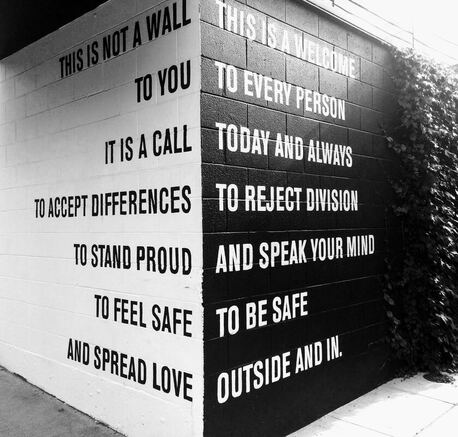 This is a long one about equanimity so feel free to jump in or scroll on past at this point :) One of the questions that has appeared in various emails and chats is how do we go about making decisions in life from a point of equanimity? One very important thing about equanimity is that it is absolutely not apathy or indifference. It isn't just being an amoeba or an emotionless jelly on a plate and letting life bash you around. Im not a Christian but I think that the serenity prayer in the christian faith can be useful here - I have left out the first word which is God, you can replace it with whatever works for you, universe, deep wisdom, or keep God if that works: 'grant me the serenity to accept the things I cannot change, the courage to change the things I can, and the wisdom to know the difference.' The serenity in the first line is equanimity, let me be equanimous or calmly accepting of the things I can't change. We can't necessarily change the way a friend acts with us, we can't necessarily change where we live every time it annoys us or the neighbours kick off, we can't change the political view of everyone that disagrees with us. Simply put we can't mould the world to fit our narrow view of how it should be. So let us find serenity in that understanding and acceptance that comes from it. The second line can be confusing, as it might sound like it is implying we should have the courage to change everything else that we want to. Yet what can we really change? Any change that we make is fine but ultimately it will only be temporary in its effect. Soon enough something else will unsettle that calm or relief we feel or maybe the change we make will not bring about the results that we wanted. Maybe the change makes things worse? So the only single thing that we can really change is our own outlook, our own reactivity and our own response. That demands great courage because there is a degree of submission/ faith / trust in there and trust is what we don't have. We are so certain that we need to change the world to keep us at peace with ourself, to trust to leave it and allow it to flow (because ultimately we don't know the long term effects of any change we make) requires enormous courage. Or simply to trust that we can make a change but not know the results likewise. It reminds me very much of the zen proverb about the man who tries to cover the world in leather to protect his feet. Instead all he needs to do is put leather on the soles of his feet. He only needs to change himself as the experiencer, not the experience. But there is certainly, in this prayer and in Buddhism and Advaita for example, no suggestion that we shouldn't make any effort to change things. We have the freedom to choose, but remember that also lets us know that we have the freedom to not try to change certain things and allow them to be. The choice is there. It is the final line that speaks to our gut instinct, our deeper wisdom - the wisdom to know the difference. This line is key......when we understand at a deep level that our happiness or peace has never, can never and will never be derived from external states, experiences or objects, only from our own outlook, then only at this point can we stop reacting to the whims of 'I dont like this, I do like that' and start make wise choices about whether the effort to make a change is useful or not. Am I simply reacting? Is this change I want to make based on the misguided idea that it will bring lasting happiness? Will that happiness really last? Or will a similar situation arise again in the future? And this is important - if you undertsand that there is no certainty in the change you make AND can be totally free of the fruits of your decision, then it is a good change to make: If I deal with it now and confront it with wisdom and clarity then the fruits of the action will always be wholesome. Whether the fruits turn out to be a perceived worse situation (you tell a friend some truths but they take it badly and never talk to you again) or whether the fruit turns out to be perceived better (you tell a friend some truths and they have an epiphany about their actions) we must be totally willing to accept that the result could be better or worse than it is now. There is no way of knowing, but the choice to act was a pure one, not blinded by misunderstanding. I want a bar of chocolate, I have the freedom to buy it or not. There is no guarantee that it will bring happiness, maybe I keep buying it if I give in every time the whim appears and I become unhealthy or have a heart attack, maybe I choke on a nut in the chocolate.Or maybe I eat the chocolate and just enjoy the eating of it and leave it there? If I feel the urger ot then buy a second bar because I think it the enjoyment will grow then I might be misguided! If i think my morning coffee will always be an enjoyable ritual, I am misguided. On a larger level maybe you move home because somewhere else appeals to you, great do it, but not because you believe it will make you happier, you might end up with awful neighbours, the place might get burgled, you have no idea. Likewise the place and town might suit you way better, or at least for a time. Make the change but dont pin ultimate happiness on it or you might get a nasty surprise. We approach living here with that view, every day I thank the invisible whatever for plonking us here, but at the same time I see that it could also be a total nightmare, there is so much to maintain and that won't be possible when we are older or if one of us gets ill; if one of us had an accident it would take an ambulance forever to find us and so on. The place has no inherent happiness about it per se, only what we lend it. So if we lost it tomorrow, then c'est la vie. It would be a shame and a headache but not the end of the world. I hope that is useful elaboration on a very tricky topic :) 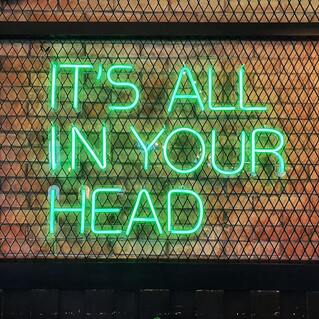 Self talk is a concept used in various therapies to explore the way in which our internal monologue shapes who we feel ourself to be - or more specifically - our external behaviours and belief in our potential. For example negative self talk might be associated with low self confidence, self blame or limiting our ability to achieve our full potential. In contrast positive self talk might make it more likely that we achieve our potential and see events in a positive light. These therapeutic approaches are as valid as any other, however from the way that I work with the mind, these concerns are already a long way down the line and by the time you are exploring the ramifications of this type of self talk, the horse has already well and truly bolted. From my experience and understanding, the most significant type of self talk is the language that we use internally which subtly but very powerfully, creates an idea or concept of what we are not who we are. This might sound confusing...aren't they the same thing? In a nutshell ....nope. Haha The former version of self talk assumes that we are a particular person, Dan, or Gemma or whoever that might be, along with the thoughts, beliefs, feelings, body and so on that are somehow 'owned' by, or which somehow 'make up' the person in question. The internal self talk - positive or negative - then further 'fleshes out' the person - literally adding extra depth or complexity to this character. The thing is that almost every Eastern tradition at least, Buddhism, Yoga, Vedanta sees this as a huge misunderstanding. They believe that we have already made a huge error in establishing what we are. In other words, that Dan, Gemma or whoever is just an idea that we accidentally give more and more weight to. We might compare it to a sculptor making a human model. They begin with a huge ball of clay, then, slowly adding clay here and taking it away there, by shaping it and forming details a very lifelike figure appears. Over time we might forget that ultimately the sculpture is simply the clay - we have forgotten all about the clay because we are so fascinated with the details overlaid on it. So from my point of view, the positive and negative self talk is a bit like the details on the clay figure - just more stuff that appears to be significant but ultimately causes me to overlook the very first question - what am i underneath all of this? Because if i never understand that, then I will always feel somehow incomplete, like something is missing in the jigsaw of my life - and that is how most of us feel - like there is always a detail missing, something we cant put our finger on. This mistaken identity is subtly reinforced by that very same internal language - 'I am thinking' 'I am seeing' 'I am sad' 'I am hungry' - but through use of language we are mistaking ourself for various objects or experiences. We are personifying thought, personifying emotions, personifying hunger. But take a step back and we clearly see that we are not those things, we are simply the knowing of those experiences. It might be more accurate to say 'I know hunger' or 'l know thinking' but still here we are subtly placing a boundary between us as this mysterious entity and the knowing as something that this entity does. Again that is a turn of phrase that doesn't help. Dig deeper and what you will find with enough silence and observation that really - all that I am is the knowing of experience. You might even shorten this to simply 'I am the knowing' Once we clearly see this and experience it - and I'm not suggesting that is going to happen quickly - all of the negative or positive self talk in the world will become totally irrelevant. We will see that we can become the greatest achiever, more wealthy, popular or whatever but it is just tinkering with the details of the created self - what is often talked about as ego in yoga, Buddhism and so on. The ego, however doesn't really exist and never did, it was just the patterns and shapes made in the clay. 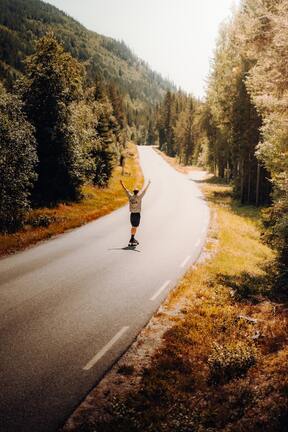 If there is one thing I could suggest to help people working with a new or existing meditation practice its 'stop trying so hard'. Ultimately meditation develops the understanding or realisation of what we really are rather than what we imagine ourselves to be. Yet to be what we really are takes no effort at all Imagine you were pretending to be someone else, you'd have to put a lot of effort into maintaining their accent, characteristics, physicality and so on. To keep that up would be quite exhausting. Yet that is what we do with out entire existence. You could say that who we think we are seems to begin with the arising of our mind. Yet way before mind arises there is already something there. Before thoughts, perceptions, conditioned ideas, before memories (thoughts about thoughts) before anxiety, worry, joy. There is something that we clearly know to exist. That's not really a correct statement though, because the 'thing' that exists before all of the above, isn't a thing in the sense of all other things that we know. All other things that we are aware of, that we experience, are what we call objective experiences. They are objective because the qualities that they seem to possess are projected onto them by the observer, by the subject. Be it a thought, a pair of trainers or the conditioned idea of a holiday, They are only 'loaned' a reality by the knower of them. One person may like the idea of white trainers, another person has no liking for them, a butterfly sees something to land on with no nutritional value, a dog perceives something to chew up. The 'trainers' never existed in an ultimate sense, only in a relative sense to the one that perceived them as trainers. They never knew themselves as trainers. Likewise a tree never knows itself as a tree, nor a bird as a bird. These are all realities projected upon them by us. Maintaining this relative view of reality requires effort from the individual, our entire day is spent grappling with the naming and labelling of all things, even of 'ourself', as good, bad or irrelevant. This labelling and naming defines our every moment and activity. After many years of struggling with 'meditation' or 'sitting quietly' or whatever label you want to pin on it, at some point I simply stopped trying. That didn't mean that I stopped sitting or meditating, but that something significant shifted in my perception that some effort was 'required'. From a practice of trying to find quiet, from trying to monitor my mind and whatever arose, from seeing meditation as another activity that I did, it shifted quite suddenly. I considered that maybe I had for all of those years been approaching it from the wrong angle entirely. There was the realisation that it was actually the only thing that I couldn't 'do'. For sure, developing better focus and concentration was a skill that could be progressed, but the deeper meditation, what I really wanted to explore, was something that I could only let go into. My brief glimpses of it had required zero effort, none whatsoever. That letting go however, the zero effort idea, was ironically, incredibly challenging. We are always so busy, feeling that we have to 'do something to maintain our existence' that to simply let go and be was easier said than done - except of course the whole point was that it couldn't be 'done'. Rather than trying to meditate or find stillness, an activity that was impossible (how can you try to find stillness through effort?!) it was actually a remembering to stop chasing the impulse to do. That impulse to be doing something is present constantly, every second. It doesn't mean that we should just stop and do nothing all day, life goes on, but doing just for the sake of doing is exhausting. Thinking for the sake of thinking, planning futures and chewing over the past for the sake of it is pointless and takes us further and further from the stillness and quiet we yearn for. So meditation becomes a process of letting go of all that, and when you think you have let go, you let go even more and apply even less effort. There is absolutely no effort required to be still, to be centred. Stillness and centred is our default setting, everything else comes afterwards, is added over the top of that. We need to fall back further and further, stop looking for something else...... 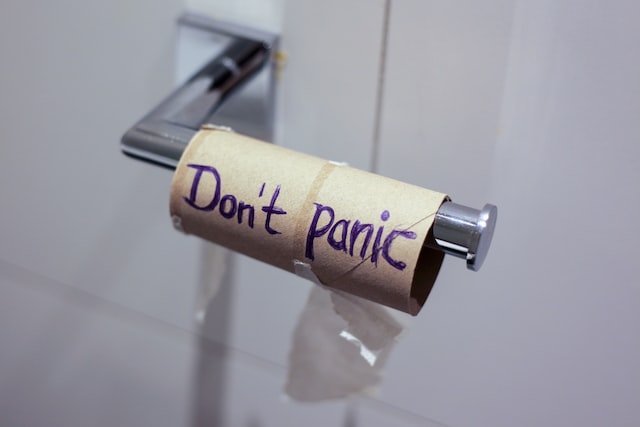 Fear is an odd thing. Of all emotions it tends to illicit a very irrational response. That reptilian part of the brain kicks in and suddenly we tend to 'forget ourselves' entirely. There are two things underlying this, both of which we are entirely ignorant of. The first and most significant is the belief we hold that we are located and limited in this body and mind. Anything that in any way threatens the continuity of this body mind complex is seen as a threat to our very being. As if we might entirely vanish should it end. Thats our root misunderstanding, our avidya, from which all other misunderstanding arises. There are all sorts of logical reasons and all sorts of meditations in many traditions, such as that of neti neti, that address this and serve to enlighten us from this mistake - i wont go int them now but Ill come back to it in another newsletter. Fear then is a reaction to anything that we feel either threatens this being or even threatens the certainty we have about our environment. After all the less certain we are about our environment the less certain we can be about the survival of this body, That threat may be as insignificant as an unwanted comment (threatening our acceptance by a group or society); or it might be a perceived threat to our livelihood, earning potential or similar - again, we miss what is happening here - we mis-perceive it as threatening our very existence - or at least threatening the certainty of our environment. Secondly, all fear has a felt component, that is to say, we feel fear in the body. It feels unpleasant. How that unpleasant feeling presents itself will be different for each person, but there is one common feature - we don't like that feeling and we want to get rid of it. The irony here is that we don't even see the reaction as being a result of the feeling, simply because we completely overlook it. These felt sensations are so very familiar to us, right in front of our face in every moment - not just with fearful situations - that we totally miss the reason for our reaction. We mistakenly believe that we are reacting to the original 'thing', the comment, the anxiety about our health, the email and so on. If we are practitioners, be it of yoga or any other sort of self development, this is a fundamental slip up. We have been graced with an opportunity to see with clarity, to erase misunderstanding and we have missed that opportunity entirely. There is no need to beat yourself up about that, in fact you probably can't because you will be entirely unaware of it. This reaction stage is largely irrational. We are in fight or flight mode. All niceties go out of the window, we simply want the physical feeling (that we don't actually consciously register) to go away. We will at this point do anything, act in almost any manner, appropriate or not, in order to regain a pleasant felt sensation. So is established the next stages of misunderstanding - craving and aversion - raga and dvesha. If we were aware of what was happening, if we were aware of the unpleasant sensation, we would have a moment to break the chain and act with wisdom, from a grounded place of logic. Of course the more often we miss the opportunity, the more we strengthen the chain of reactivity to sensation. So how do we practice better noticing, better awareness? Observation of the breath and the body are the key. We can do this in a formal or non formal setting. Formal would be time allocated to breath observation or body sensation observation, in other words - a meditation centred on awareness of breath and body. Nothing to do, simply observing. Letting awareness rest on observation, without processing, without adding anything or taking anything away from the experience. Simple, open awareness of body and breath. Becoming familiar with how it fluctuates when a noise or a thought or a feeling arises. Once we have established some little understanding of this, we are then able to extend it into a non formal setting - i.e simply living our lives with presence. We will mess up, we will forget and we will not notice...but every now and then we will notice, we will see that we are feeling in the body and breath and we will see that we are about to react to that. It is at these moments that we have an opportunity to stop the chain of reactivity before it reaches its reactive conclusion. We can take a step back, draw breath and act with wisdom rather than reacting with ignorance. We do have a choice. Whether you take it or not is up to you. One thing is sure though, don't pretend that you are practising yoga simply by doing asana and practising odd breathing patterns - thats just moving the body and breathing weirdly, its not yoga. Yoga is to know the self, to understand the self, the breathing, the moving, they are just tools, if you don't understand what a tools purpose is it becomes entirely useless. Trying to open a screw top on a glass bottle with a hammer is going to be frustrating and probably result in some broken glass. Likewise, go through the motions of yoga as much as you like, but without correcting your fundamental misunderstandings you are pretty much just killing time. Staying Positive in Challenging Times...I had to chuckle earlier - i had been writing an email and I signed iff with hope you have a great xmas break and that next year brings more joy...surely it cant be worse than this one!?
What made me chuckle was suddenly remembering I had written almost exactly the same words to the same person this time last year. It also seemed to be extended in every xmas card we received last year. I guess that the initial shock of a very changed world in 2020 has abated in 2021 and been replaced by an acceptance that humankind isn't about to vanish forever in a plague like apocalypse...yet! Cue sigh of relief ..... although maybe not from every other species on the planet! :) What the panic and disorientation of 2020 has been replaced by though is something that makes me feel more uneasy - that is a tangible division in society. It only takes a small amount of contemplation to see that all of this division is based in both fear and ignorance - regardless of what side of the equation you sit. Fear drives most of our choices - it is irrational because it carries too much emotion and therefore opinions that arise from it are almost always saturated by hostility and anger towards those that disagree. For example, regardless of whether you are into vaccines, masks, passports or not, both sides are oblivious to the fact that they have so much in common - they are equally united by their fear. Many see vaccination as a way to abate the fear that they might lose their life or the own lives of those they love to the virus. For them it is the pathway to freedom from fear of death, illness and manipulation of fate by an invisible foe. Others will see vaccines and covid passports as a threat to their own health and liberty. Once again this is an opinion derived equally from fear of death, illness and manipulation of their fate, only this time by other forces than a virus. Each side will argue passionately, referencing their argument with facts, first hand experience and hearsay. There is absolutely nothing wrong with having an opinion, I have lots of opinions on lots of things, but it is the anger I see that is the most concerning element of all this. People that I thought I knew well, suddenly behaving in ways that I never imagined they would towards others, trying to impose their views of right and wrong. At times like this, when each side is so righteous it pays us well to return to the second element that i mentioned at the start- that being ignorance or avidya - the root cause of our suffering according to Buddhism and yoga. There is so much ignorance tied up in confrontational opinion
To be human is to suffer, it is our nature to die, it is our nature to grow old; it is our nature to grow sick. It is unavoidable. You might push it away, but it is an inevitable conclusion to this game we play. We don't know when our time will come and therefore there is little point trying to predict it or foolishly imagine that we can prolong it. So we have to remind ourselves that to embark upon this path is to trust to it, is to have bhakti or devotion for it - there is no need to worry about the story unfolding, the great 'Lila' or game of life. As the Taoists would say, just enjoy the mystery; as the Advaaitins would say - you get on the train and trust it to take you to your destination, so put down your luggage and let the train carry its weight, don't keep it balanced on your head! Let us stop worrying about what we think is right. Maybe it is our destiny to be wiped out at this moment? The true altruist, the only true altruist it could be said, would probably say that this was the best solution for the myriad of other species on the planet right now! Or maybe it isn't our time? Either way we don't know and it isn't important anyway. What is important is to remember that we don't know, that we are ignorant to most of this and that we act blindly from fear for so much of the time. That is normal, that is to be human. So we see it , we work to dispel it because we don't want to perpetuate that negativity in the world and we endeavour to be as positive and accepting to all people as we can, regardless of their opinions, because we see the underlying fear and ignorance that links all humans so strongly. In other words, we wake up from our daydream. Recently I advocated that everyone checked out the positive news websites online, just google 'positive news'. It is so good for your mental health and for nurturing positive empathetic states of mind. Take time out to sit with your feelings and emotions every day, even if just a few minutes. See them clearly, see the origin of your thoughts and actions and you will not act out blindly so often. An remind yourself that we are all suffering, to be human is to suffer, there are causes of suffering and there is an end to suffering - but that end for you or anyone else will never be found by extending hostility, fear and anger :) We hope you all enjoy a more fantastic 2022! Haha So last week we talked about fear, working with fear and all sorts of misunderstandings that we have around that emotion.
I had some great feedback afterwards by email and its always useful for me to know whether the way that I am working with a topic makes sense or not. This is particularly useful if you are a teacher of anything - it is called teaching by wise means or Upaya in Buddhism. You may not have realised but legend has it the Buddha was reluctant to pass on his message to the world after enlightenment, he simply thought that sharing it would be too difficult as it was such a personal journey and everyone learns in very different ways. In fact how it is possible to learn about something as abstract and intangible to the thinking mind as waking up from this very dream of reality? The photo above sums this up really nicely, even the most devoted to the 'spiritual' path have a foot in both worlds. If not there would be no imagined spiritual path to even entertain us! What a hilarious situation to be in :) The problem of a 'spiritual path to waking up' is that the thinking mind and attachment to an imagined self are the very predicament we find ourselves in. How can these faculties therefore ever solve the problem of themselves? So we have to look slyly, out of the corner of our eye so to speak, the teachings aren't an A to B set of instructions - as much as we'd love them to be and most people assume they are - but a hint at the direction we should cast our gaze. If we head off in the rough direction, the chances are that we wont turn back. We may forget where we are going every now and then as we get sucked back into the world of 'ten thousand things' as the Taoists call it, but if the devotion to the path is strong enough and without desire (theres another tricky thing - desireless devotion) then we will persevere. This desireless devotion to the ever present 'one' or true self, is akin to our idea of Bhakti yoga - devotion to God - except this God isn't personified in any way as we might usually find. So there is a real trick in how we explore this, because dedicated practices are obviously a paradox in letting go of self, mind and objects that seem to cause us suffering. To address this paradox, as far as is possible, there are certain non-practices found in many traditions, notably the non-dual paths of Advaita Vedanta, Dzogchen Buddhism, Taoism and Kashmiri Shaiivism. Although they may sometimes begin with an investigation of objects such as the body , their intention is to cut through the illusion of these objects and see the clarity of pure presence that the objects appear within and arise from. At other times they 'look to' (again a paradox) the only 'non object' that we are aware of...awareness or consciousness itself, the sense that very clearly 'I am'. If we can rest in this state as often as we remember to, we will lose interest in the world of ten thousand things. If you are interested in this 'Who Am I?' approach then I suggest you read a little around Sri Ramana Maharshi (below) and Sri Nisargadatta Maharaj. Both of whom were very unassuming characters who never attempted to be teachers but for the need of those that wanted to learn. However they shared very clear, direct messages, the latter being the owner of a tobacco shop where he would dispense these :) Michael James is a wonderful English translator of Ramanas teaching and you can find many talks with him on youtube although they aren't for the faint hearted. you will probably hear me on them at times asking very pressing questions too! I'll be exploring some of these 'non-practices' in a 2 hour long live worksop with my good friends a Movement for Modern Life on Sunday 23rd May @10am the booking link is here if you'd like to join us https://movementformodernlife.... |
AuthorDan Peppiatt. Archives
June 2024
Categories |

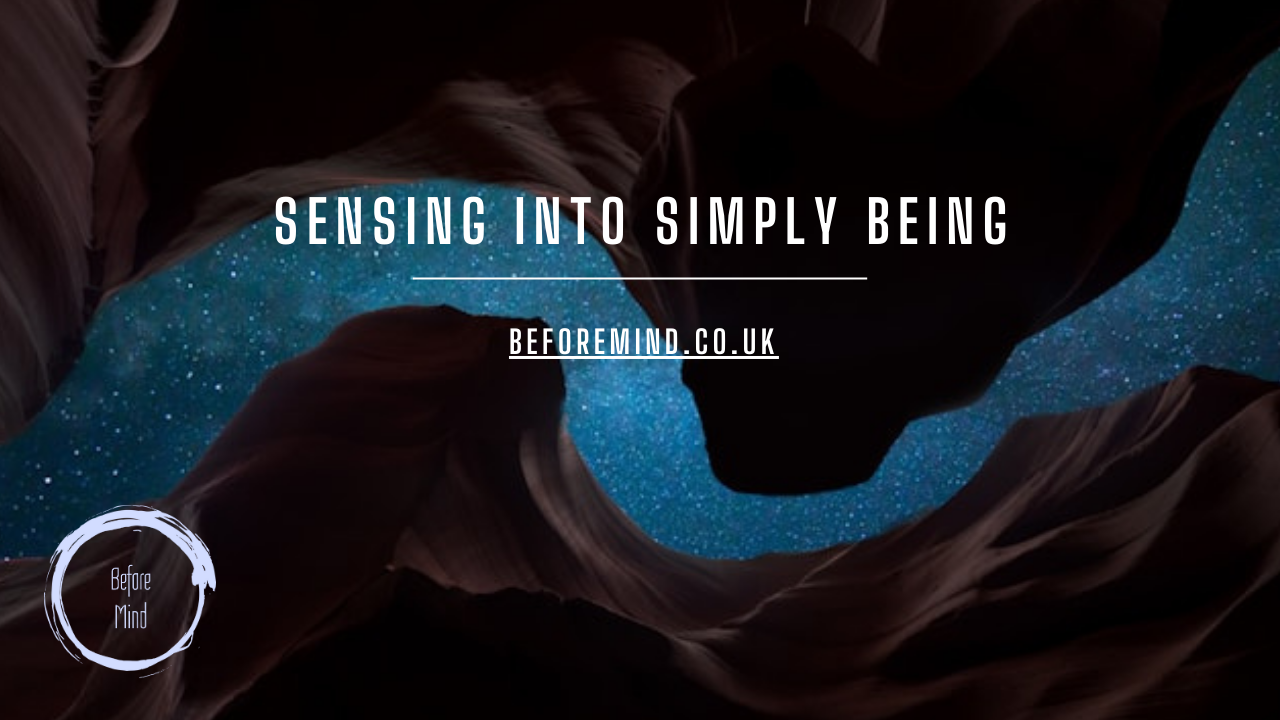
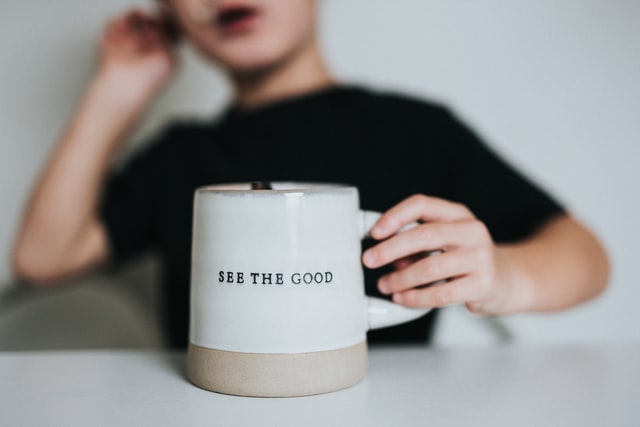
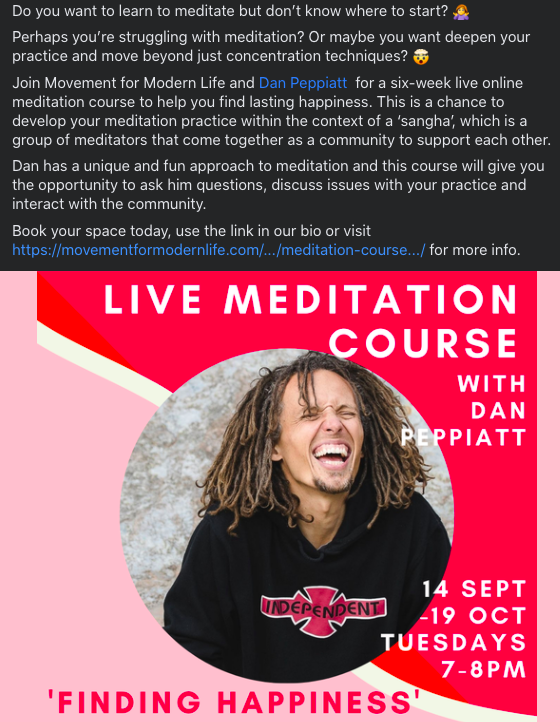
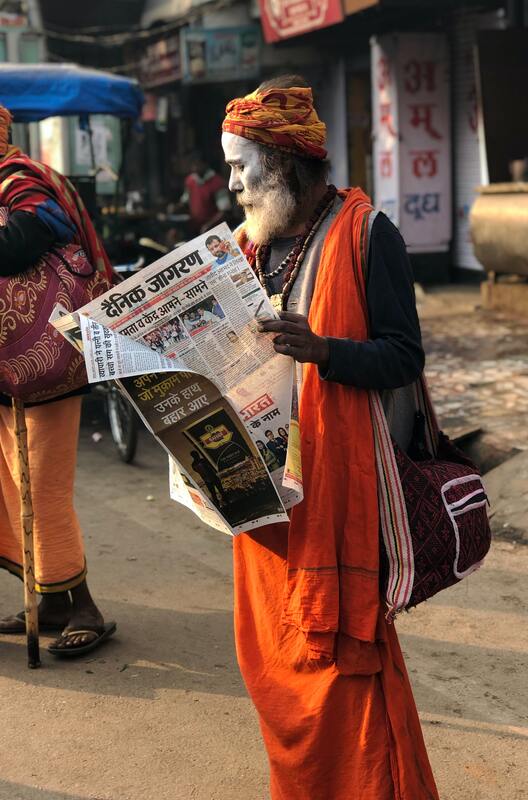
 RSS Feed
RSS Feed